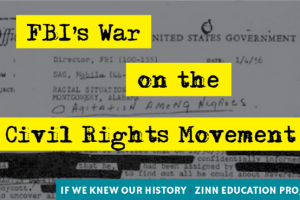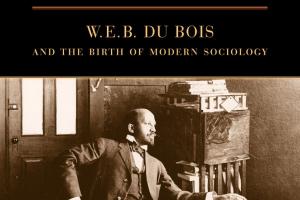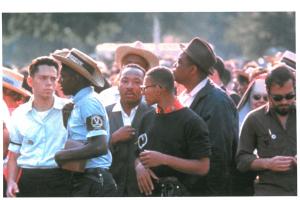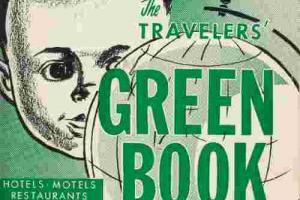The Roots of Black Incarceration
Boston Review
 On March 8, 1971—while Muhammad Ali was fighting Joe Frazier at Madison Square Garden, and as millions sat glued to their TVs watching the bout unfold—a group of peace activists broke into an FBI office in Media, Pennsylvania, and stole every document they could find. These documents revealed an FBI conspiracy—known as COINTELPRO—to disrupt and destroy a wide range of protest groups, including the Black freedom movement.
On March 8, 1971—while Muhammad Ali was fighting Joe Frazier at Madison Square Garden, and as millions sat glued to their TVs watching the bout unfold—a group of peace activists broke into an FBI office in Media, Pennsylvania, and stole every document they could find. These documents revealed an FBI conspiracy—known as COINTELPRO—to disrupt and destroy a wide range of protest groups, including the Black freedom movement.
 This new book argues that W. E. B. Du Bois was the first of the USA's modern sociologists. Du Bois's empirically-based studies of African Americans at the end of the nineteenth and the beginning of the twentieth centuries are models of sociological research. Aldon Morris details this legacy, which academic Sociology still does not universally acknowledge. In this review, Monica Bell considers the significance of Morris's argument.
This new book argues that W. E. B. Du Bois was the first of the USA's modern sociologists. Du Bois's empirically-based studies of African Americans at the end of the nineteenth and the beginning of the twentieth centuries are models of sociological research. Aldon Morris details this legacy, which academic Sociology still does not universally acknowledge. In this review, Monica Bell considers the significance of Morris's argument.
 In September 1965 a dozen or so members of Dr. Martin Luther King Jr.’s southern field staff moved into the West Side Christian Parish’s Project House in the heart of Chicago’s Near West Side, joining other volunteers already living there. Black and white, male and female, most of them still in their early twenties, they had already been tested by civil rights struggles in the South.
In September 1965 a dozen or so members of Dr. Martin Luther King Jr.’s southern field staff moved into the West Side Christian Parish’s Project House in the heart of Chicago’s Near West Side, joining other volunteers already living there. Black and white, male and female, most of them still in their early twenties, they had already been tested by civil rights struggles in the South.
 Jim Crow laws across the South mandated that restaurants, hotels, pool halls and parks strictly separate whites and blacks. Lynchings kept blacks in fear of mob violence. There were thousands of so-called “sundown towns,” which barred Blacks after dark with threats of violence. So in 1936, a postal worker named Victor Green began publishing a guide to help African American travelers find friendly restaurants, auto shops and accommodations in far-off places.
Jim Crow laws across the South mandated that restaurants, hotels, pool halls and parks strictly separate whites and blacks. Lynchings kept blacks in fear of mob violence. There were thousands of so-called “sundown towns,” which barred Blacks after dark with threats of violence. So in 1936, a postal worker named Victor Green began publishing a guide to help African American travelers find friendly restaurants, auto shops and accommodations in far-off places.
Spread the word